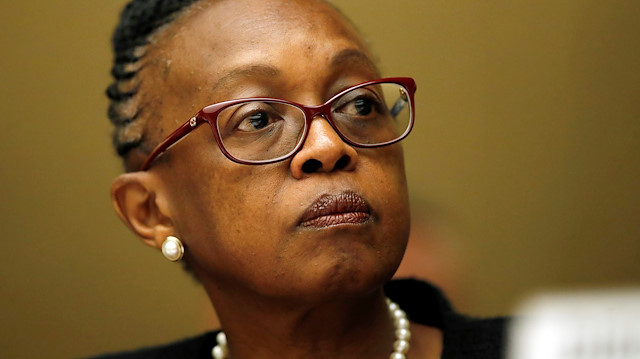
Africa director says decision to open schools difficult one
As schools re-open in many African states, the World Health Organization (WHO) on Thursday stressed the need to continue preventive measures against coronavirus.
In a media briefing, Dr. Matshidiso Moeti, Africa director of WHO, said the issue needs to be addressed with the same urgency that we have seen in opening up economies and businesses.
Moeti said the WHO's advice is to weigh the risks, to use the data on COVID-19 cases in the community to guide decisions on re-opening schools "and to put in place measures to enable physical distancing [...] as well as ensuring students wear masks and are able to wash their hands.‘’
"The decision to open schools or not, amid the pandemic, is a difficult one. But we must find the right balance to avoid trading one adversity for another.
"Children are our future, and education is a pathway out of poverty towards prosperity and better health for the African continent,’’ she added.
Several African countries have reopened schools in recent weeks amid rising cases of the coronavirus pandemic.
She said the longer schools remain closed the greater the risk that they may not return to school. "School closures are potentially exacerbating risks of teenage pregnancies, of violence against children, of substance abuse in anxiety, loneliness, and isolation."
"At least 18 million children from Sub-saharan Africa benefit from school meals... children being out of schools contribute to increased food insecurity," she added.
There are over 1.1 million confirmed COVID-19 cases on the African continent -- with more than 859,000 recoveries and 26,000 deaths cumulatively, according to WHO Africa.
She said the virus in Africa is mostly concentrated in urban areas in overcrowded areas in which transmission is easier compared to rural areas.
Reopening schools “too early” in developing countries could undermine the gains made so far in curbing the spread of the novel coronavirus, the World Economic Forum warned in a report earlier this month.
Children are very unlikely to die from the novel coronavirus but they live with adults and elders -- particularly in developing countries, the report said.
‘’According to the UN data, the proportion of elderly people who live with at least one child under 20 is more than 10% in most African countries, compared to less than 1% in European countries and the US,’’ the report said.


